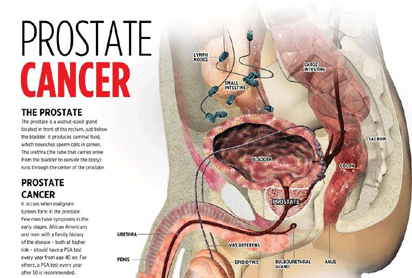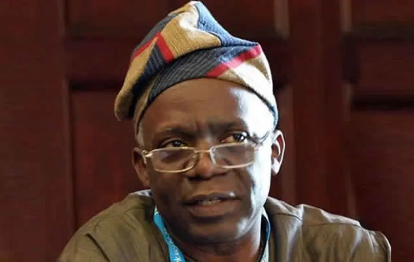The Association of Urological Surgeons in Nigeria (NAUS) has expressed concern about the recent and continued circulation in the public space of what it labelled as misinformation on social media and mainstream media regarding the link between frequent ejaculation and the risk of prostate cancer.
In a position statement on “Risk of Prostate Cancer and Frequency of Ejaculation” obtained by Vanguard, the executive committee of the NAUS – a professional organisation dedicated to advancing the field of urology in Nigeria – noted that while some studies have explored a potential correlation between increased ejaculation frequency and a reduced risk of prostate cancer, the evidence remains inconclusive, stating that more research is needed to fully understand the connection.
The statement – CAC/TT/No. 125351 – dated December 16, 2024, and jointly signed by the Association’s President, Prof. N.K. Dakum, and Secretary General, Prof. Muhammed Ahmed, cautioned that at this time, it is important to interpret the existing evidence carefully, and frequent ejaculation should not be seen as a guaranteed way to prevent prostate cancer.
The Association argued that as a body of experts, it had a sense of duty to clarify the claims to prevent the spread of misleading information regarding ejaculation and prostate cancer risk
The statement reads: The Association of Urological Surgeons, Nigeria (NAUS) has observed with concern the recent and continued dissemination of information on social media platforms and even the mainstream media in Nigeria regarding the relationship between sex/frequent ejaculation and the risk of prostate cancer.
“There is a need, as professionals in the field to make a statement in that regard to avoid the perpetuation of often misleading and inaccurate statements or conclusions.
“We, therefore, wish to state that while there are studies suggesting a potential association between frequent ejaculation and reduced prostate cancer risk, the evidence is not yet conclusive, and more research is needed to understand the relationship between the two fully.
“For now, caution is advised in the interpretation of the available evidence and this should not be seen as a firmly established remedy to prevent prostate cancer.
“To date, there is no firmly established means of prostate cancer prevention, thus prostate cancer screening for early detection remains the standard approach. We hope this gives some clarification on this issue.”
Currently, there is no established method for preventing prostate cancer. Early detection through regular screenings remains the most crucial strategy.
















